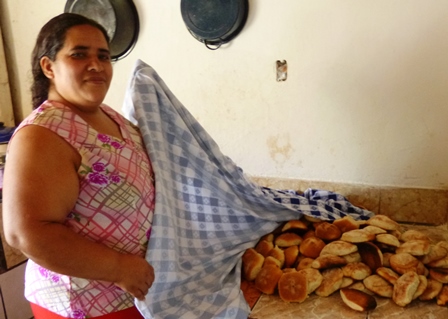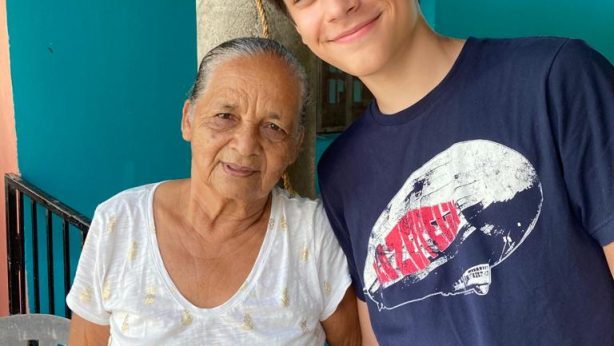“Education is the Only Inheritance That I Can Give to My Children.”
Elsa Marina is a hard working entrepreneurial mother in the department of La Paz who has continued to offer her eight children the education they need to improve their own situations. With just two children left at home, she is proud to say that the six oldest have graduated high school, four with their teaching degrees [1].
With a third grade education herself, Elsa has taken on all kinds of businesses over the years to find a way to support her family. While her husband is out in the fields working, Elsa is at home baking breads, making atol (a warm corn beverage popular in the Honduran highlands), and running her corn mill as a paid service offered to her neighbors.
Since starting with Adelante in 2009, she has grown her small business significantly. Elsa received a Home Improvement Loan to create a division between her living room area (where her assembly of 24 women meets every two weeks) and a bedroom. Now, as her 17 year old daughter enters her last year of high school before she becomes a teacher and her youngest begins the eighth grade in February, Elsa feels pressured by the rising costs, yet hopeful for the coming Secondary Education Loan.
“We are never able to buy everything that is required.” –Maria Adela, Mother of ten and Basic Goods Store Owner

Maria Adela and her husband often struggle to keep six children in school at once. His salary of about $300/month is never enough to support such a large family.
These women, like so many others I’ve met, dream of seeing their children reach beyond what they are capable of. Each woman is challenged by the large sums of money they must invest into each child’s education. These expenses come at the beginning of the school year and additional projects arise throughout the year. Many rural families are unable to keep up with the financial demand. A Secondary Education Loan helps keep her children in school by spreading out the costs over the course of a year. This reduces the burden of her children attending school, rather than working in the fields or staying at home.
[1] Only a High School Education is required to become a teacher at the primary and secondary school levels. Hondurans elect career tracks at the high school level to fully immerse themselves, rather than having a more general education that is more commonly found at the high school level in the United States.
Maria Adela is the mother of ten who recently started with Adelante. With a new basic goods store and five children in school between 5-15 years old, she is hopeful for additional support to help her children continue on to their respective grades next year. For Adela, a $250 loan purchases school supplies and uniforms (including the required shoes) for her two middle school children, while she invests her earnings in the youngest three in elementary school.


